detail profile ulrich m c3 bche
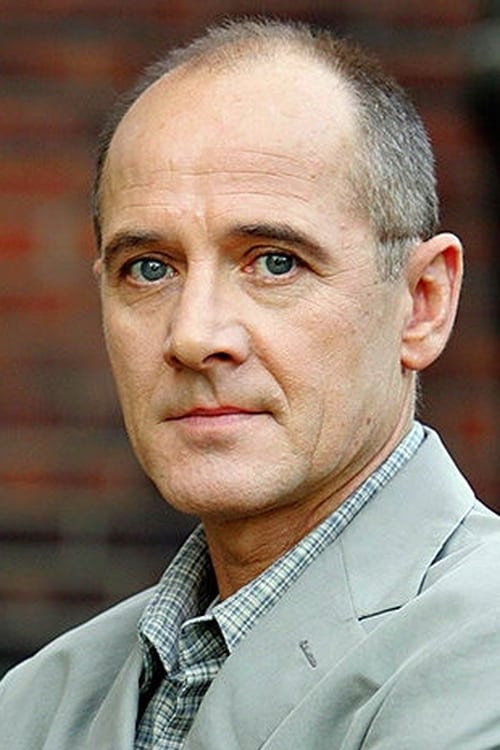
Ulrich Mühe
Friedrich Hans Ulrich Mühe
atau dikenal sebagai
Riwayat Hidup
Friedrich Hans Ulrich Mühe (20 June 1953 – 22 July 2007) was a German film, television and theatre actor.
He played the role of Hauptmann (Captain) Gerd Wiesler in the Oscar-winning film Das Leben der Anderen (The Lives of Others, 2006), for which he received the award for Best Performance by an Actor in a Leading Role, Gold, at Germany's most prestigious film awards, the Deutscher Filmpreis (German Film Awards); and the Best Actor Award at the 2006 European Film Awards.
Curiously, events in Mühe's life were mirrored by the plot of the film, as he allegedly discovered in a Stasi file compiled on him that he had been under surveillance by his second wife, Jenny Gröllmann.
Gröllmann denied this, and after an acrimonious and highly-publicized court case she succeeded in obtaining an injunction to prevent Mühe from repeating the allegation in a book.
After leaving school, Mühe was employed as a construction worker and a border guard at the Berlin Wall.
He then turned to acting, and from the late 1970s into the 1980s appeared in numerous plays, becoming a star of the Deutsches Theater in East Berlin.
He was active in politics and denounced Communist rule in East Germany in a memorable address at the Alexanderplatz demonstration on 4 November 1989 shortly before the fall of the Berlin Wall.
After German reunification he continued to appear in a large number of films, television programmes and theatre productions.
In Germany he was particularly known for playing the lead role of Dr.
Robert Kolmaar in the long-running forensic crime series Der letzte Zeuge (The Last Witness, 1998–2007).
Description above from the Wikipedia article Ulrich Mühe, licensed under CC-BY-SA, full list of contributors on Wikipedia.
Info Pribadi
Peran Yang Di Mainkan Ulrich Mühe
 Based on archive holdings from nine...
Based on archive holdings from nine...Jedermann Remixed 2011
Based on archive holdings from nine decades, director Hannes Rossacher has created a complete Jedermann performance and thus a unique cultural-historical puzzle from Alexander Moissi to Nicholas Ofczarek. The success story of the phenomenon "Everyman" is told in an unprecedented way.
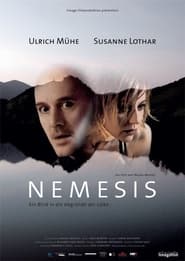 Claire and Robert spend most of...
Claire and Robert spend most of...Nemesis 2010
Claire and Robert spend most of their time in a house they own in the beautiful and remote countryside in Italy. Their life seems to be perfect. But when Claire's sister gets murdered in the very same house, the traumatic event shakes up their relationship. Disappointment, fear and resentment they swept under the rug for years, resurface. Revealing the dark side of a blissful love - a dream that turns into a nightmare. It is the story of two people trapped in a dark secret.
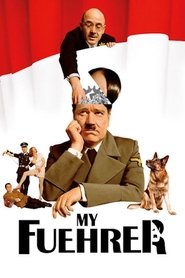 Hitler no longer believes in himself...
Hitler no longer believes in himself...My Führer 2007
Hitler no longer believes in himself, and can barely see himself as an equal to even his sheep dog. But to seize the helm of the war he would have to create one of his famous fiery speeches to mobilize the masses. Goebbels therefore brings a Jewish acting teacher Grünbaum and his family from the camps in order to train the leader in rhetoric. Grünbaum is torn, but starts Hitler in his therapy ...
 In 1983 East Berlin dedicated Stasi officer...
In 1983 East Berlin dedicated Stasi officer...The Lives of Others 2006
In 1983 East Berlin, dedicated Stasi officer Gerd Wiesler begins spying on a famous playwright and his actress-lover Christa-Maria. Wiesler becomes unexpectedly sympathetic to the couple, and faces conflicting loyalties when his superior takes a liking to Christa-Maria.
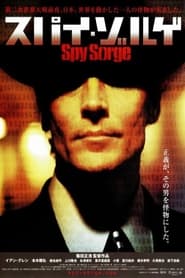 A foreign spy using the Sorge...
A foreign spy using the Sorge...Spy Sorge 2003
A foreign spy using the Sorge alias is assigned to Tokyo the capital of Japan just prior to the outbreak of World War II and in the midst of the Japanese imperial ambitions in Eastern Asia. The spy becomes acquainted with a sympathetic communist who like he is attached to the ideals of freedom and rule of the masses. Sorge is able to feed the Soviet Union useful information regarding the Axis allies and their movements in Asia and beyond.
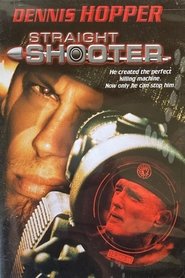 After his daughter died of cancer...
After his daughter died of cancer...Straight Shooter 1999
After his daughter died of cancer, former French foreign legionnaire "Straight Shooter" alias Volker Bretz threatens those who financed, built, favoured and now work the nuclear power plant Atar II to kill one of them each day until the plant is shut down. His former drill sergeant, Frank Hector, who now owns several night clubs and brothels, is the only one who might be able to stop the maniac killing specialist. Frank is flown in instantly, but soon has to find out that his former comrade's actions might be a result from an event long ago.
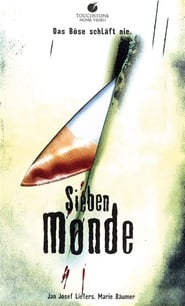 Thomas Krmer follows the traces of...
Thomas Krmer follows the traces of...Night Time 1998
Thomas Krömer follows the traces of a brutal murder in werewolf-manner out of personal interest. After investigating for some time, the traces all point to one person: himself. Now, he has to find out whether he surprisingly turns into a blood-seeking werewolf at full moon without knowing it or if there is an other solution to the murders. Police are getting pretty suspicious after Thomas' own grandmother has been brutally slaughtered in her little fairy-tale-fashioned house in the woods, and it will soon be time for a full moon...
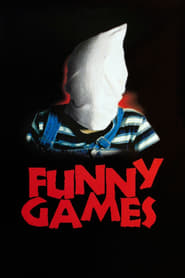 Two psychotic young men take a...
Two psychotic young men take a...Funny Games 1997
Two psychotic young men take a mother, father, and son hostage in their vacation cabin and force them to play sadistic "games" with one another for their own amusement.
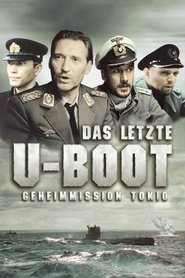 Near the end of WWII a...
Near the end of WWII a...The Last U-Boat 1993
Near the end of WWII a lone U-Boat is sent from Germany to Japan carrying plutonium needed for a Japanese A-Bomb. During the long journey, news arrives on the radio that Hitler killed himself and Germany has surrendered. This causes a rift in the crew, the Nazi Party members wanting to continue to Japan since they are still at war, while the others just want to surrender or return home.
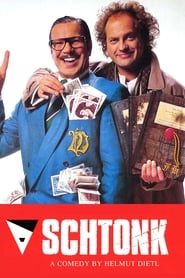 Schtonk is a farce of the...
Schtonk is a farce of the...Schtonk! 1992
Schtonk! is a farce of the actual events of 1983, when Germany's Stern magazine published, with great fanfare, 60 volumes of the alleged diaries of Adolf Hitler – which two weeks later turned out to be entirely fake. Fritz Knobel (based on real-life forger Konrad Kujau) supports himself by faking and selling Nazi memorabilia. When Knobel writes and sells a volume of Hitler's (nonexistent) diaries, he thinks it's just another job. When sleazy journalist Hermann Willié learns of the diaries, however, he quickly realizes their potential value... and Knobel is quickly in over his head. As the pressure builds and Knobel is forced to deliver more and more volumes of the fake diaries, he finds himself acting increasingly like the man whose life he is rewriting. The film is a romping and hilarious satire, poking fun not only at the events and characters involved in the hoax (who are only thinly disguised in the film), but at the discomfort Germany has with its difficult past.
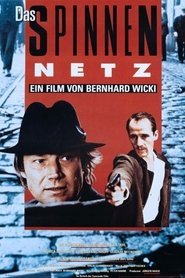 Ulrich Mhe plays a German businessman...
Ulrich Mhe plays a German businessman...Spider's Web 1989
Ulrich Mühe plays a German businessman who was born completely without scruples. This makes him an eminently suitable candidate for success in the chaotic years after World War I. The shameless man's story is contrasted with that of his polar opposite, a Jewish anarchist.
 Kurt Gersteina member of the Institute...
Kurt Gersteina member of the Institute...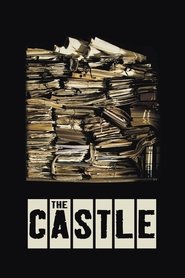 Michael Hanekes adaptation of Franz Kafkas...
Michael Hanekes adaptation of Franz Kafkas...
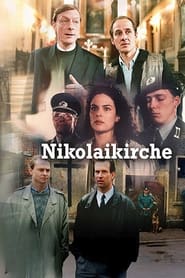
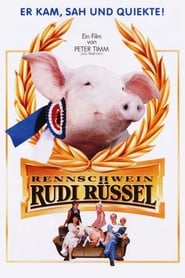 Flatdwelling urban family win a pig...
Flatdwelling urban family win a pig... A 14yearold video enthusiast obsessed with...
A 14yearold video enthusiast obsessed with...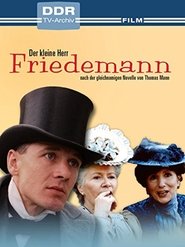
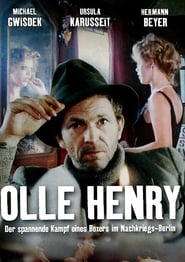 1945 Peace still bears the traces of...
1945 Peace still bears the traces of...